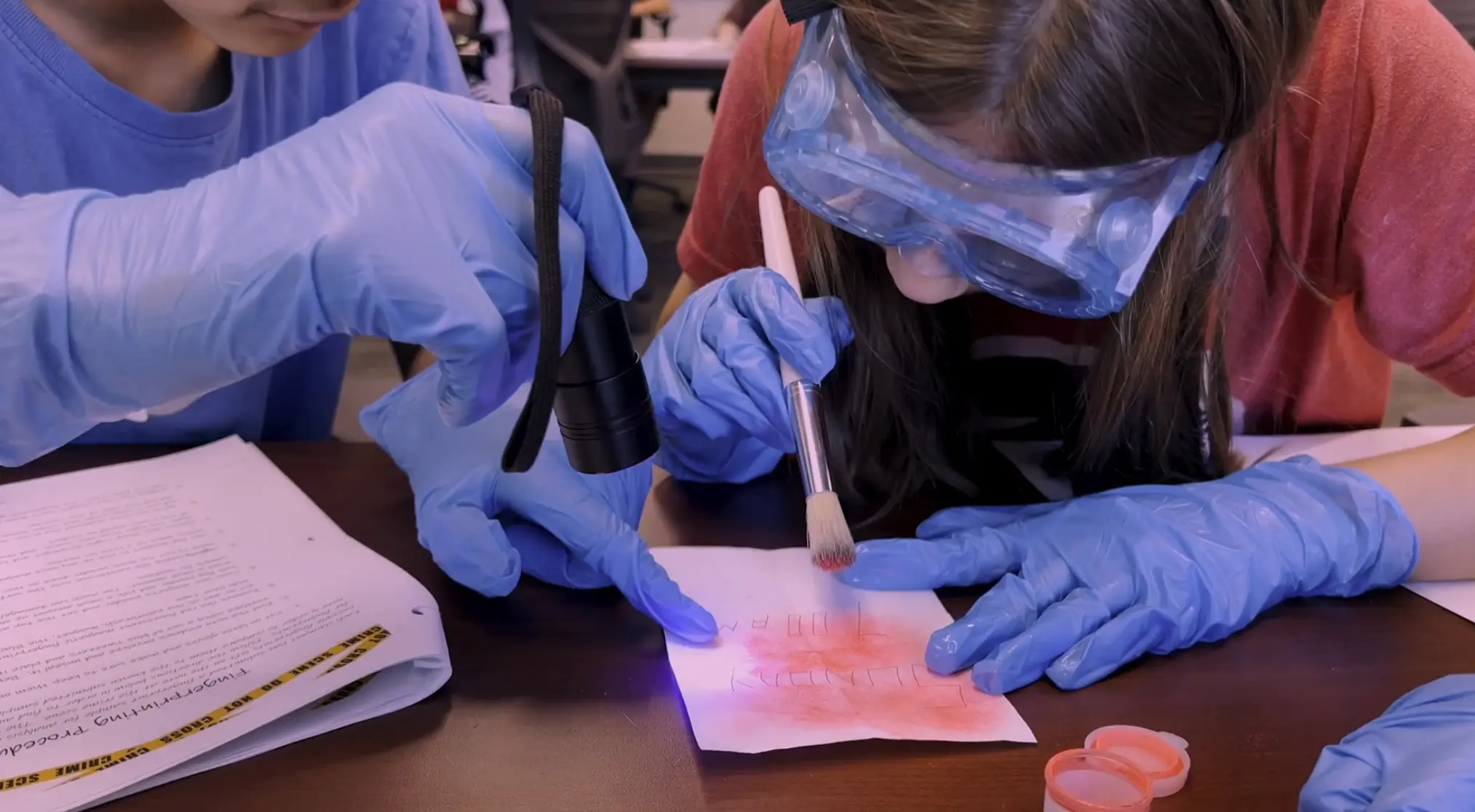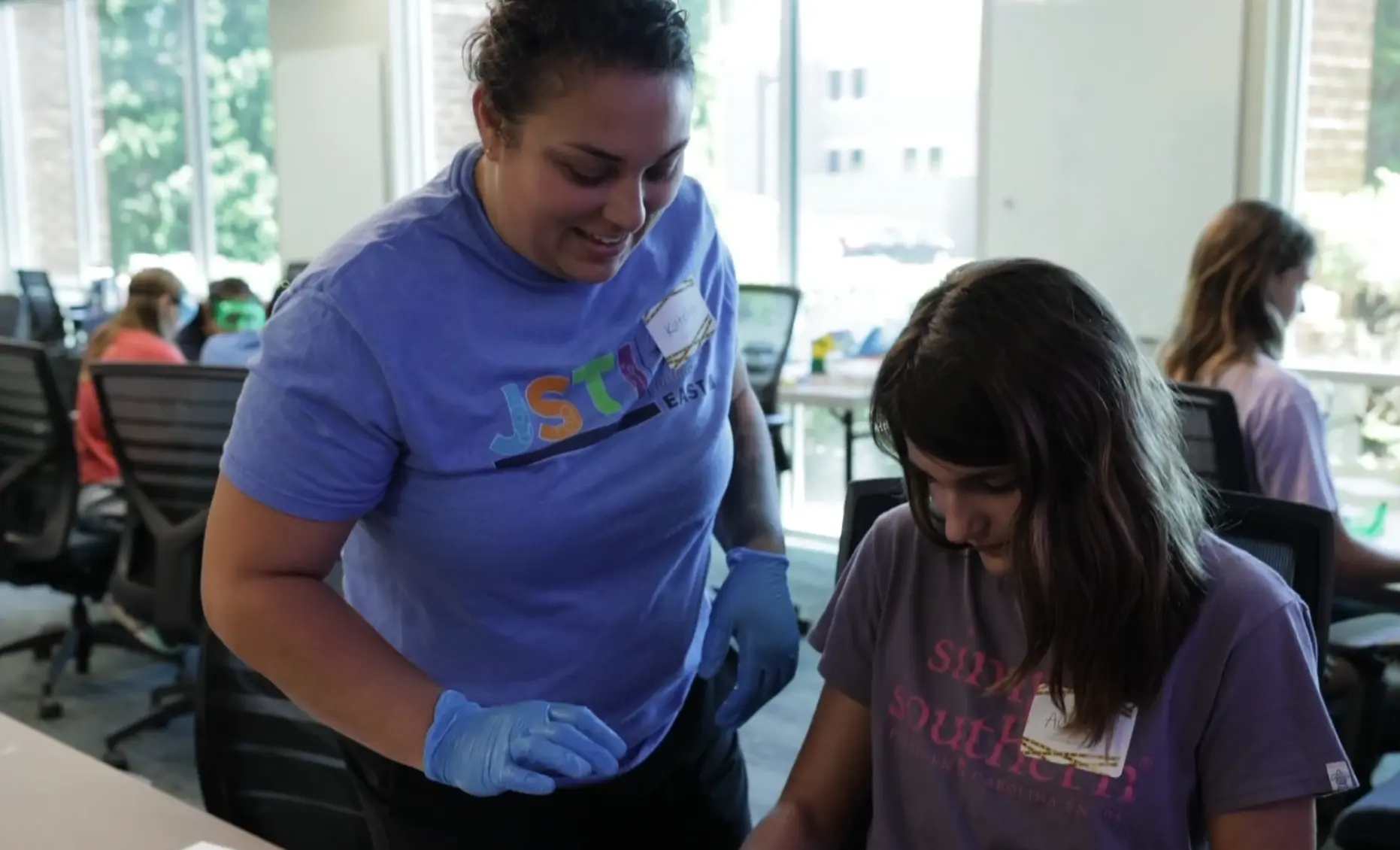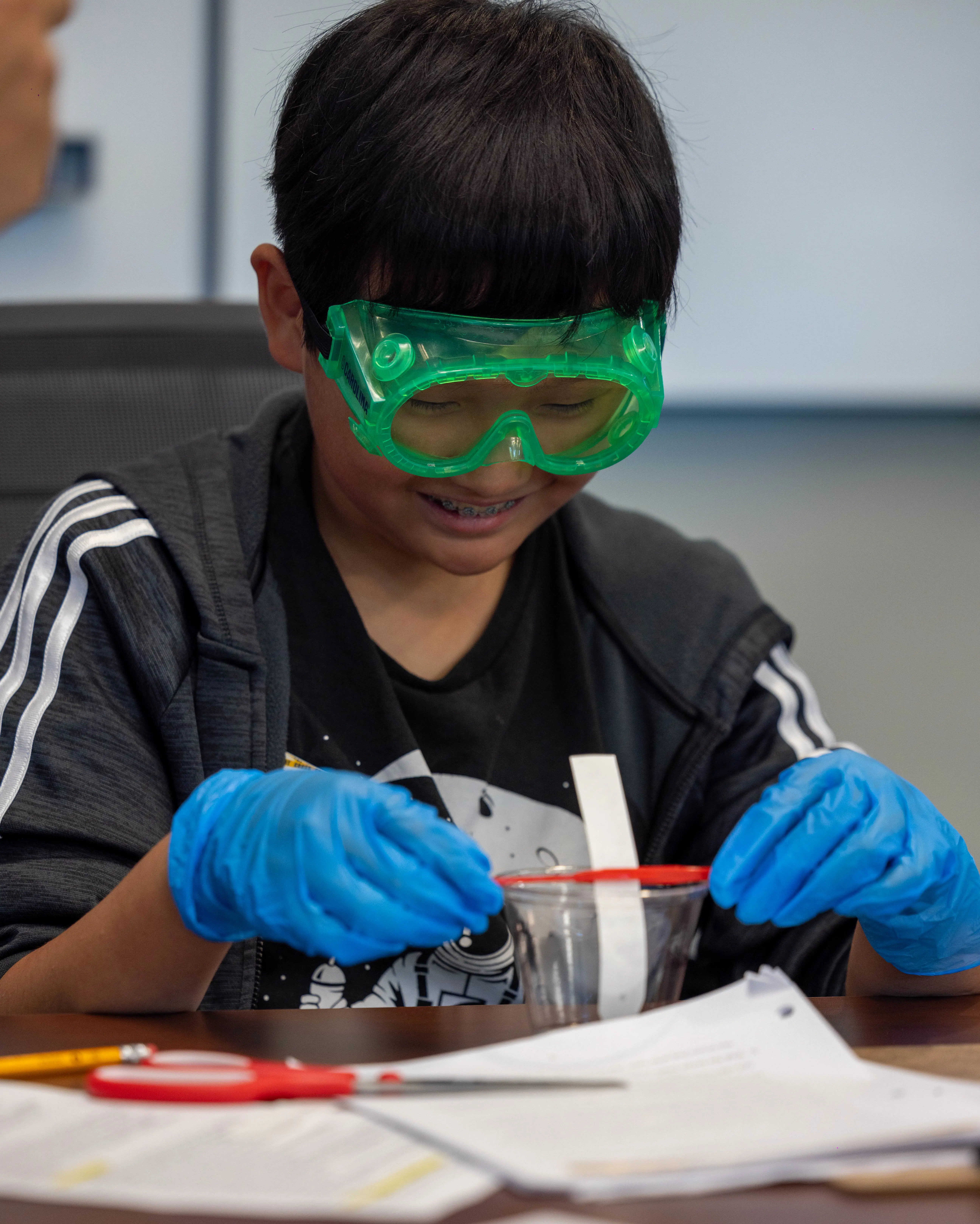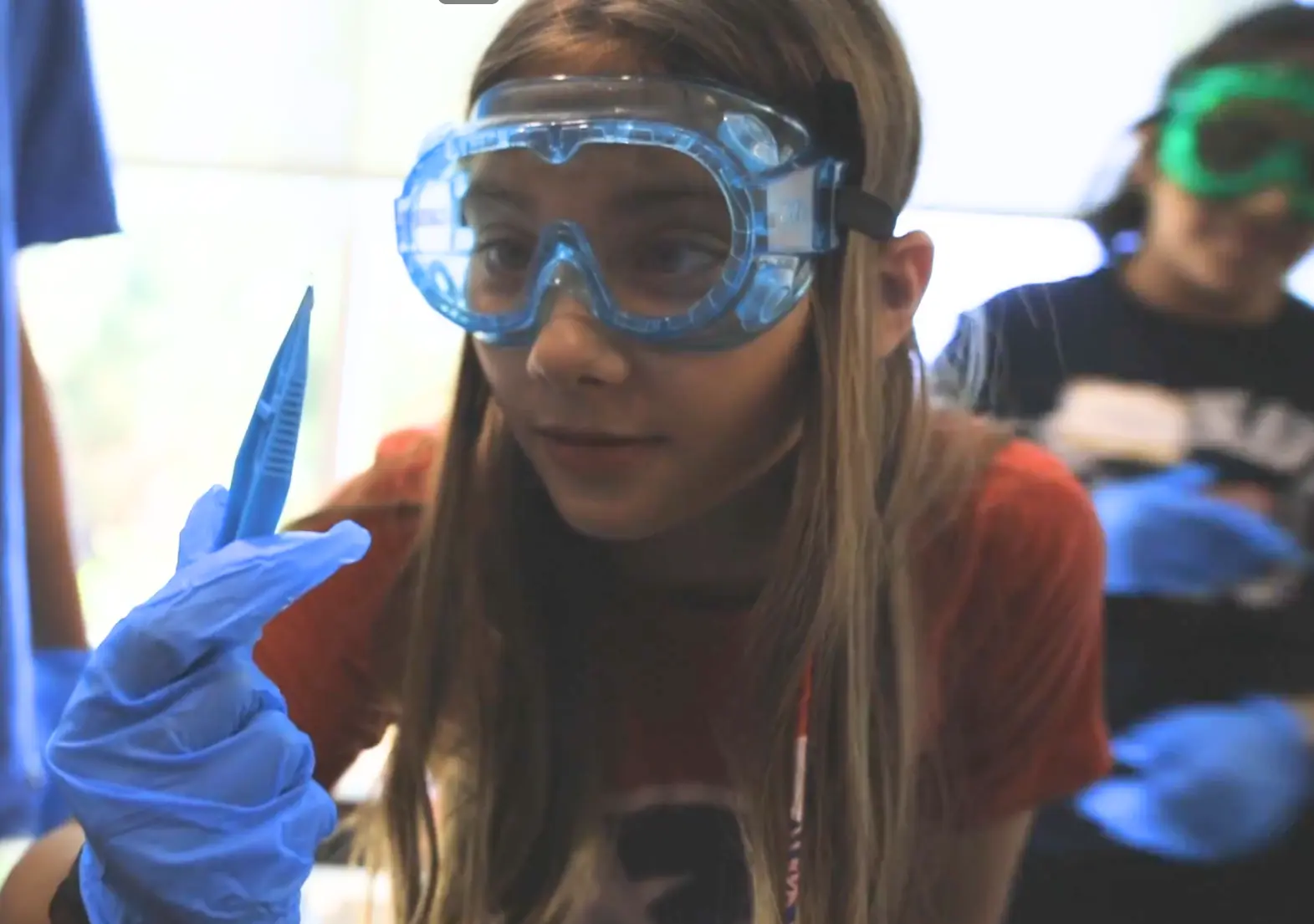
Animal skull, fingerprints and fake blood: Samples help students solve mystery in ORISE forensic chemistry academy
Not all mysteries are a crime, but when teaching students how to solve a puzzle with forensic chemistry skills, a crime scene is a lot more fun and memorable. That’s why participants who registered for ORISE’s Forensic Chemistry Mini-Academy—held in June 2024 on ORAU’s main campus in Oak Ridge, Tennessee—arrived to find crime scene tape outside their academy classroom.

Katelyn Hanley, chemistry teacher at Lenoir City High School, leads students in ORISE’s Forensic Chemistry Mini-Academy
“Humans are innately curious,” said Katelyn Hanley, instructor of the course. “We’re trying to grow our future scientists, so we want to capture student interest in STEM classes. Then, they’ll hopefully move into a science-minded career. This is why I take part of my summer to do this.”
Hanley teaches chemistry at Lenoir City High School in Lenoir City, Tenn. She’s passionate about inspiring the next generation to continue exploring science. Forensic chemistry is more specialized than chemistry, as it pertains specifically to the analytic study of substances. In the context of crime scene investigation, it’s identifying substances that could be misidentified or confused with something else.
This free, two-day course is designed for rising 7th through 9th graders, encouraging them to make observations, use critical thinking, test theories and draw conclusions. Hanley explained, “We set up a crime scene: the case of the lost skull.”
Jayden Han, a rising 7th grader at Farragut Middle School in Knoxville, Tenn., was a participant in the course. He said the scenario had some twists and turns: “This animal skull is found near a school, and there are five women who come to claim the skull. We’re trying to figure out who the skull really belongs to,” Han said.

Jayden Han, rising 7th grader at Farragut Middle School, examines the evidence
The students received a packet of information that included the facts of the mystery. In teams, they combed through the scene to piece together clues.
“They had the cast of a shoe print that had some hair hidden in it. It was light-colored, so they had to actually look to find it. Some of our groups missed that hair. They learned how important it is to use all of our observation [skills] and to take our time scoping the crime scene, and that’s what’s really applicable to life,” Hanley continued.
Han loves science and knows he wants to do something with it in the future. “I’m just interested in mysteries and how detectives actually figure it out, like in TV shows,” he laughed. “It’s a lot more complicated than I thought it would be.”
“What if our crime scene investigators missed something? Some key piece of evidence?” Hanley asked the class.
Beyond the skull and shoe print, students also found a note with fingerprints and a few dollars with fake blood samples. Item by item, the student investigators learned to analyze the evidence using techniques such as fingerprinting, shoe imprinting, blood typing and fiber analysis. They even learned about chromatography, which is a technique for separating a mixture into its components. Han especially enjoyed this element of the mystery. “It’s pretty realistic,” he said. “I’ve learned about different chemicals that can be used to figure out what kind of people have been at the scene. I can see how this knowledge of separating substances will help me with critical thinking in the future.”
“They’re getting some one-on-one instruction. I have two other instructors with me, so they’re helping. It’s a high-quality academy,” Hanley said. “The kids can use this later. Maybe not as a forensic scientist with tweezers and evidence bags, but it might be something a little bit different. They’re looking for data or evidence that’s out of place.”

ORISE Forensic Chemistry Mini-Academy students analyze fibers found at “crime scene”
While not all mysteries are crimes, all mysteries are worth exploring for the knowledge we gain. ORISE’s Forensic Chemistry Mini-Academy encourages students to pursue their curiosity. For the future of our world, Hanley says that’s an invaluable push in the right direction.
Learn more about free student enrichment opportunities.
Media Contacts
Pam Bonee
Director, Communications
Phone: 865.603.5142
pam.bonee@orau.org
Wendy West
Manager, Communications
Phone: 865.207.7953
wendy.west@orau.org
The Oak Ridge Institute for Science and Education (ORISE) is a U.S. Department of Energy (DOE) asset that is dedicated to enabling critical scientific, research, and health initiatives of the department and its laboratory system by providing world class expertise in STEM workforce development, scientific and technical reviews, and the evaluation of radiation exposure and environmental contamination.
ORISE is managed by ORAU, a 501(c)(3) nonprofit corporation and federal contractor, for DOE’s Office of Science. The single largest supporter of basic research in the physical sciences in the United States, the Office of Science is working to address some of the most pressing challenges of our time. For more information, please visit science.osti.gov.

